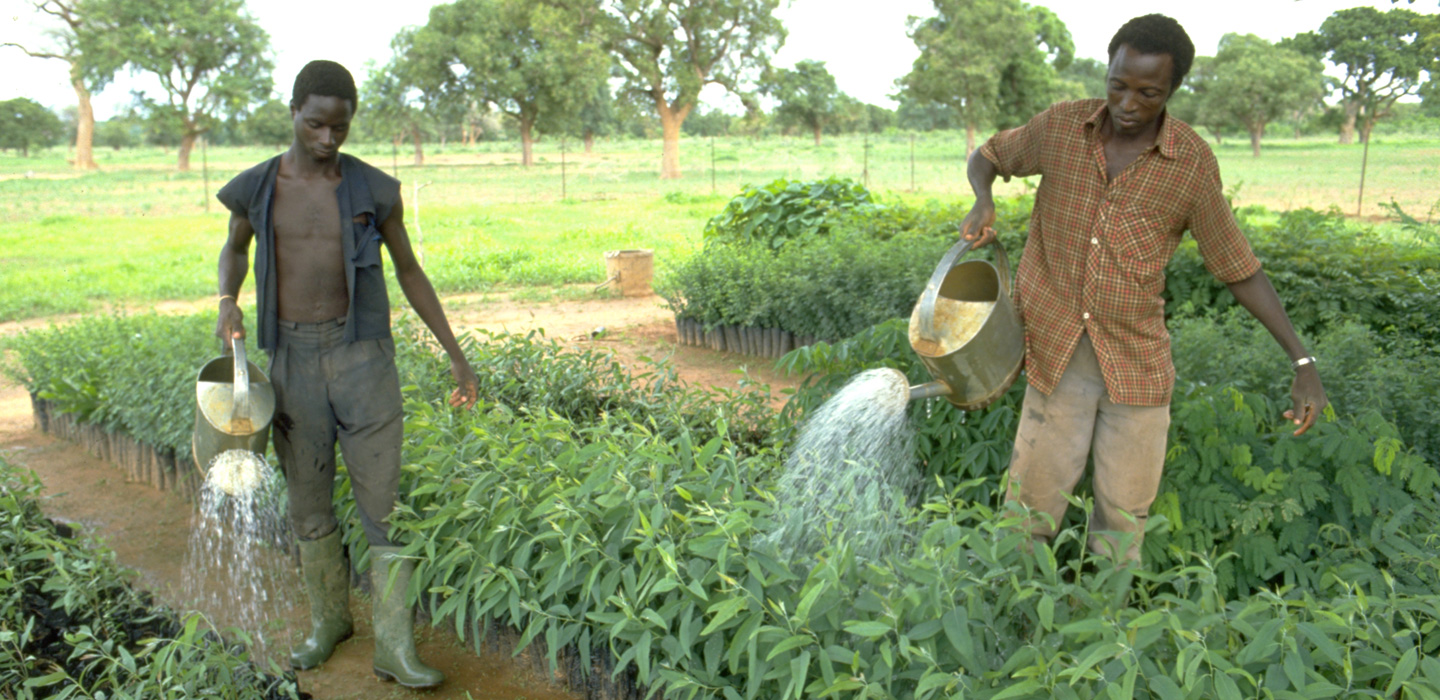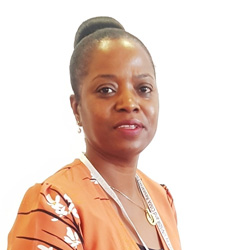Restoring nature and livelihoods: Experiences in Zambia
IFAD Asset Request Portlet
Asset Publisher
Restoring nature and livelihoods: Experiences in Zambia
Estimated reading time: 4 minutes
© IFAD / Jeremy Hartley
World Environment Day is a day set aside to raise awareness about environmental issues and encourage protective action. This year’s theme, “Time for Nature,” resonates especially well with our work here at IFAD on environmental and climate change issues.
Among all of the forces contributing to climate change and biodiversity loss, deforestation is one of the most significant. It destroys ecosystems and critical wildlife habitats, adversely affects livelihoods and reduces carbon sequestration. It also reduces the natural cycling of moisture from soils, through vegetation, and into the atmosphere, leading to reduced atmospheric humidity and potentially suppressing rainfall. Sufficient tree cover also reduces storm water run-off, and minimizing run-off reduces erosion and pollution in waterways and the effects of flooding.
This is especially true in Zambia, where deforestation results in 250,000–300,000 ha of forest cover lost per year. The country’s Luapula, Muchinga and Northern Provinces have seen extensive deforestation and forest degradation over the years, with wood extraction, charcoal production, agricultural expansion, infrastructure development and fires largely driving the destruction. These activities were a necessary survival strategy for poor villagers struggling to make ends meet. Nevertheless, charcoal production is one of the primary causes of carbon stock loss.
In Zambia, focusing on large landowners and industry alone is not sufficient to combat deforestation, as the nation’s smallholder farmers are responsible for 60 per cent of the forest loss per year. Therefore, to reach a solution, they must also be engaged.
In an effort to engage these smallholder farmers, the Government of the Republic of Zambia, through the Ministry of Agriculture and with joint support from IFAD, entered into a partnership agreement with Community Markets for Conservation (COMACO) and Total Land Care (TLC) to deliver agricultural and advisory services, including the promotion of sustainable livelihoods, as part of the implementation of the Smallholder Productivity Promotion Programme (S3P) in these three provinces. Among other interventions, smallholder communities were educated on how to protect forests and curb deforestation while achieving sustainable livelihoods.
Through various interventions, the smallholder sector successfully achieved a reduction in deforestation. With a focus on short-term, high-impact outcomes such as lowering rates of wood consumption, adopting less destructive methods of tree cutting, and promoting practices that encourage natural regeneration, the project emphasized:
- Crop diversification. Providing financial incentives for growing various food crops resulted in a reduction in cotton growing. This typically leads to significant losses in tree cover, as less land needs to be cleared for cultivation. Increasing diversification (by adding new crops, such as legumes) and improving crop rotation have allowed the restoration of soil fertility, while also resulting in shorter fallow periods and further reducing the need for smallholder farmers to cut trees.
- Environmentally friendly beehives. To date, over 7,000 beehives and 12,000 log hives have been constructed by farmers practising small-scale apiculture. These hives reduce the need to cut trees for their wild honey and also offers an alternative source of income to charcoal making.
- Clean-energy stoves. A total of 5,723 households in the region are now using clean-energy stoves (rocket stoves). This has reduced the consumption of wood by 1.95 tonnes per annum per household, resulting in a 30 to 50 per cent reduction in unsustainably harvested wood. This equates to a reduction of 3 tonnes of carbon dioxide emissions per household per year compared to the use of open fire.
- Sustainable farming systems. Robust forest management governance has led to households moving away from the chitemene (“slash-and-burn”) method, adopting improved agriculture technologies and implementing improved farming practices that increase yields and reduce deforestation.
The programme also undertook activities with a longer-term perspective:
- Natural regeneration and management of woodlands. To sustainably address the need for wood as a source of fuel and building material, this effort saw the planting of trees of diverse species on degraded hillsides, riverbanks and roadsides, as well as at individual households.
- Agroforestry. Under this land management technique, trees and shrubs are grown around crops to increase biodiversity and reduce erosion. Farmers’ cooperatives across the entire region have successfully brought this effort to scale, planting a total of 1,076,000 Gliricidia seedlings.
Although the S3P efforts have largely been successful, it should be noted that reforestation programs generally face a host of challenges. They are expensive and prone to drought, disease, fire, damage from termites and animals, as well as poor management at various stages of the cycle. To yield the best possible outcomes, vital considerations such as careful species selection, nursery care, and time and method of planting must be carefully kept in mind. Additionally, communities such as those in northern Zambia, who often live at or near subsistence level and lack the material resources to rebuild the forest that has disappeared over time, require tailored support.
But capacity-building such as this empowers these communities to actively participate in the project’s success, from selecting appropriate trees suitable for their ecological region to identifying viable alternative income-generating activities. These inclusive efforts to restore the ecosystem are in the community’s best interest – and the results achieved to date confirm that smallholder farmers have a key role to play in reducing deforestation.
After all, in the words of the Goldman Environmental Prize Winner Wangari Maathai, “the future of the planet concerns all of us, and all of us should do what we can to protect it. As I told the foresters, and the women, you don’t need a diploma to plant a tree.”
Learn more about IFAD's work in Zambia. Publication date: 05 June 2020